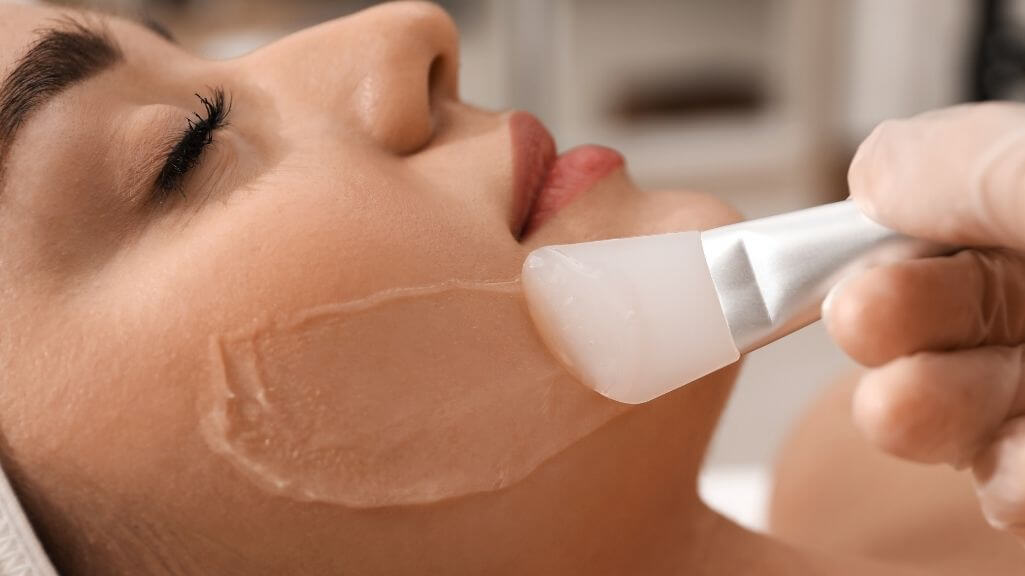Complete Guide to Retinol 2025: Benefits, Products, and How to Use Safely
Retinol—the skincare superhero that’s often called the “holy grail” for fighting wrinkles, acne, and dullness—is probably already on your radar. But with endless products, confusing terms like retinoids, and scary side effects, getting started with retinol can feel overwhelming.
Relax! We’re breaking down everything you need to know about retinol clearly, simply, and practically. Let’s dive into this complete retinol guide, so you know exactly how to achieve clear, glowing, and youthful skin.
Retinol, a widely recognized derivative of vitamin A, is a powerhouse skincare ingredient commonly found in over-the-counter products. Celebrated as the industry’s gold standard for reversing signs of aging, it works by accelerating skin cell turnover, revealing a fresher and more youthful complexion. Not only does this ingredient help diminish fine lines and hyperpigmentation, but it also plays a crucial role in treating acne, making it a versatile and effective solution for various skin concerns.
🧴 Best Retinol Serums & Products (2025)
Did you know “best retinol serum” was the second most popular skincare search globally? Clearly, everyone wants the most effective retinol for their skincare arsenal. Here are popular picks in 2025:
| Brand | Skin Type | Price | Key Benefits |
|---|---|---|---|
| The Ordinary Retinol 1% | Oily, Acne-Prone | Affordable | Controls breakouts, smooths texture |
| CeraVe Resurfacing Retinol Serum | Sensitive, Dry | Mid-range | Hydrates, reduces hyperpigmentation |
| Paula’s Choice Clinical Retinol | All Skin Types | Mid-range | Anti-aging powerhouse, gentle formulation |
| SkinCeuticals Retinol 0.5 | Mature, Sensitive | Luxury | Potent anti-wrinkle, dermatologist favourite |
How to Choose?
- Sensitive Skin: Look for gentler formulations (like encapsulated retinol).
- Oily/Acne-Prone Skin: Choose lightweight, non-comedogenic formulas.
- Dry Skin: Opt for hydrating retinol blends (ceramides and hyaluronic acid).
Retinol vs. Retinoids: What’s the Difference?
“Retinol” and “retinoids” sound similar, but they’re not identical.
| Retinol (OTC) | Prescription Retinoids |
|---|---|
| Mild, less irritating | Stronger, more potent |
| Suitable for anti-aging, mild acne | Ideal for stubborn acne, severe aging |
| Example: The Ordinary 1% Formula | Example: Tretinoin, Adapalene |
If your skin isn’t responding to OTC or you’re targeting severe acne or deep wrinkles, consult a dermatologist for prescription-strength retinoids.
How to Use Retinol Correctly
Retinol’s effectiveness depends on correct use. Misuse often causes irritation and dryness, especially at the start.
Follow these easy tips:
- Start Slow: Use only once or twice weekly at first.
- Nighttime Application: Retinol is sensitive to sunlight; apply at night.
- Apply after cleansing: Cleanse → Serum → Moisturizer.
- Avoid combining with: Vitamin C, benzoyl peroxide, or exfoliating acids simultaneously.
Important: Always apply sunscreen daily to protect your fresh, sensitive skin.
Retinol Benefits for Skin
Retinol is famous for improving almost all common skin issues:
- Boosts collagen: Reduces wrinkles, improves skin elasticity.
- Fights acne: Clears clogged pores, reducing breakouts and inflammation.
- Evens skin tone: Brightens dullness, fades hyperpigmentation.
If you’re wondering, “Does retinol really help with acne?” Yes, it’s one of the most dermatologist-recommended solutions for acne and blemishes.
⚠️ Retinol Side Effects & Safety
Retinol has a reputation for causing irritation initially, but understanding how to manage this can help:
Common Side Effects:
- Dryness, redness, and peeling
- Mild stinging or irritation
- Temporary acne flare-ups
- Increased sun sensitivity, raising sunburn risk
These occur because retinol accelerates skin cell turnover, temporarily disrupting your skin barrier. Usually, these side effects subside after several weeks.
How to Reduce Side Effects:
- Start with a low concentration, applying every 2–3 nights
- Use a gentle moisturizer to combat dryness
- Apply broad-spectrum sunscreen daily
- Patch-test to check for reactions
- Reduce frequency if irritation persists
Important Safety Note: Avoid retinol completely during pregnancy and breastfeeding, as excess Vitamin A poses risks to fetal development.
Retinol in Diet vs. Topical Use
You might recognize retinol as a form of Vitamin A commonly found in carrots, sweet potatoes, and liver. While dietary Vitamin A is excellent for vision, immunity, and general health, can it truly replace topical skincare products for your skin’s appearance?
- Dietary retinol: Great for internal health, supports skin indirectly.
- Topical retinol: Directly stimulates skin renewal for immediate skin results.
Excessive oral intake (especially from supplements) can lead to vitamin A toxicity—so stick to recommended daily allowances and consult with healthcare providers for supplementation.
Retinol Stability & Formulation
Did you know retinol loses effectiveness when exposed to air and sunlight? Look for products in:
- Airless pumps
- Opaque containers
- Encapsulated formulations
Store your this products in a cool, dark place, and use them within 6–12 months after opening for maximum benefit.
📌 Quick FAQs Answered
- Does retinol help acne and breakouts?
Yes, it clears pores, reduces inflammation, and speeds healing. - Why does retinol cause dryness at first?
It accelerates skin renewal, temporarily disrupting the moisture barrier. - How to know if retinol is working?
Initially, you might experience mild irritation or peeling—this signals increased cell turnover. Long-term results include clearer, smoother, brighter skin. - Is retinol safe during pregnancy?
No, avoid retinol (and all retinoids) during pregnancy and breastfeeding.
Final Takeaways
Retinol is undeniably powerful, scientifically proven, and loved by dermatologists worldwide. But success with retinol depends on choosing the right product, correct application, and understanding your skin’s response.
Remember, start gently, listen to your skin, and don’t skip sunscreen—your skin’s best friend during your retinol journey!
For more health & beauty tips, check out our Blog


Permalink